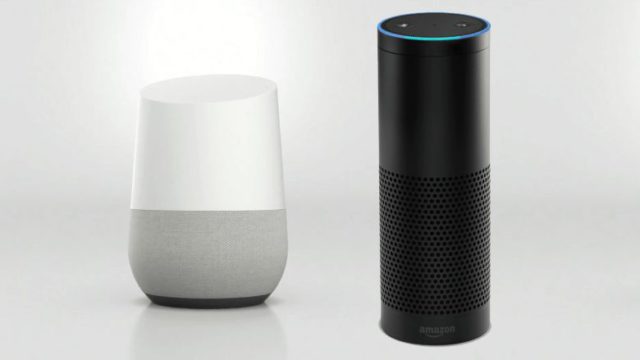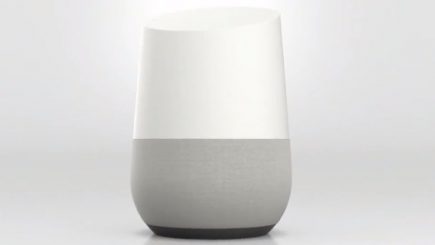Reasoning about the safety of private information when using voice assistants.

I really like the XKCD web comic, even though I don't understand about 20% of the jokes. But if you are a scientific geek like me, then laughing at intellectual concepts is even useful.

But when the above comic appeared in my feed the other day, I was a little upset. I am a big fan of always-listening devices like Google Home and Alexa. I believe they are the future of personal computing. Therefore, any attempt to put their concept in a disadvantageous light is somewhat annoying.
The comic is funny. After reading it, I laughed at the absurdity of the situation. But by and large, there is a certain warning here: you should not be in a house in which your every word is recorded by a microphone. A few weeks ago, I joked about why the government should make an effort to install bugs in someone's home when people are willing to do it themselves. But it was just a joke.
The technology is already here
So, let's open all the cards to look at the situation from the same position. Google Home and Amazon Echo devices (most of them) have 'constantly listening' microphones. Your phone can also have a similar microphone if you activate it in the settings. Voice control is already working and constant listening is the only guarantee of the technology's work. If the device is not listening to your voice, then the voice will not be able to control it. If you need to physically interact with the device, the very concept of voice control is lost.
But the information collected by these microphones will not be used to the detriment of the user. The resulting data serves you, which is what the term 'voice assistant' means. Is it possible that Amazon or Google can access the information collected by these devices? From a purely technical point of view, yes. But there is a more important question: do they need it?
Just because i can
This is the whole point of controversy. The microphone in your home can be perfectly used to monitor what is happening in a single room. He already knows how. But a microphone that is always in your pocket has a similar ability. Moving to this technology will take several steps along this morally contradictory path, but by and large these steps are minor. As a society, we need a certain level of trust to make the transition to this technology, and these comics certainly do not contribute to this.

Am I trying to actively promote the idea that we should give up all our rights and privacy in favor of the bigwigs, the government or whoever? Of course not. But it is the position of those people whose rights are used in the given context that needs to be discussed. I invite everyone to ensure that our privacy rights are protected by the voice control provider. It is extremely important to know that our daily life will not become a bargaining chip in the game of large corporations.
Social arrangement
But to achieve this goal, you do not need to completely limit yourself from new technologies. To do this, it is better to make sure that protective mechanisms are working that are capable of maintaining privacy at a decent level. To rephrase – if you are worried about the safety of personal information when using Alexa in the kitchen, then you should probably give up checks and credit cards and go back to regular money. Do you think I'm out of my mind? But banks are in the most similar situation and theoretically can undermine our trust with the same success as Google or Amazon can. Every two weeks my family transfers all their savings up to a cent to the US Bank, in exchange for the assurance that we will be able to use this money at our discretion, anytime and anywhere. This is a kind of social contract, which is introduced to ensure our freedom to use money. There are also legal obligations that provide us with the opportunity to seek assistance in protecting our rights in the event of a breach of this agreement. Sound familiar?
Of course, the comparison is not 100% accurate, it is a little stretched, but the very element of the social contract is similar. We must trust Google and Amazon to store information without transferring it to someone or using it for other purposes in the same way as we trust banks to keep our money safe, not spend it or transfer it to others . There is a reason why we tick the box 'agree to the terms and conditions' that almost no one reads. And nobody reads them in the bank. This is so that both parties know what [the service provider] can and cannot do with the information. If we do not read these terms, then it is our own fault.
Not angels
I'm not talking about the fact that Google and Amazon were sent down to us in an angelic guise in order to protect us from evil. My point is that the security of information should depend on our trust in companies. Data leaks can occur. There is a risk, but the technology is an attempt to balance risk, rewarding benefits, safety and convenience. If you want to isolate yourself from the whole world so that no one knows from Alexa that you like princesses from Disney cartoons, then there is nothing in this, this is your choice. On the other hand, I prefer using voice assistants to the fullest, and I trust Google and Amazon to keep my private information safe until the world knows about my extensive collection of Disney adult dresses. So, stop, forget about the dresses.
Original material by Adam Dowd.
The author's position is quite understandable and adequate, but nevertheless, conversations and fears around privacy will continue, in the foreseeable future there are no prerequisites for their end. Let people understand the technological component of voice assistants, let them believe Google, but once a year a stick fires, technology fails, hackers work, there is always a threat. But is this a reason to live in constant fear or to refuse to innovate in the world of technology? The answer to this question must be given to oneself and to understand what information is worth or not worth trusting as yet unknown services and products. And it is not at all necessary to buy foil.
